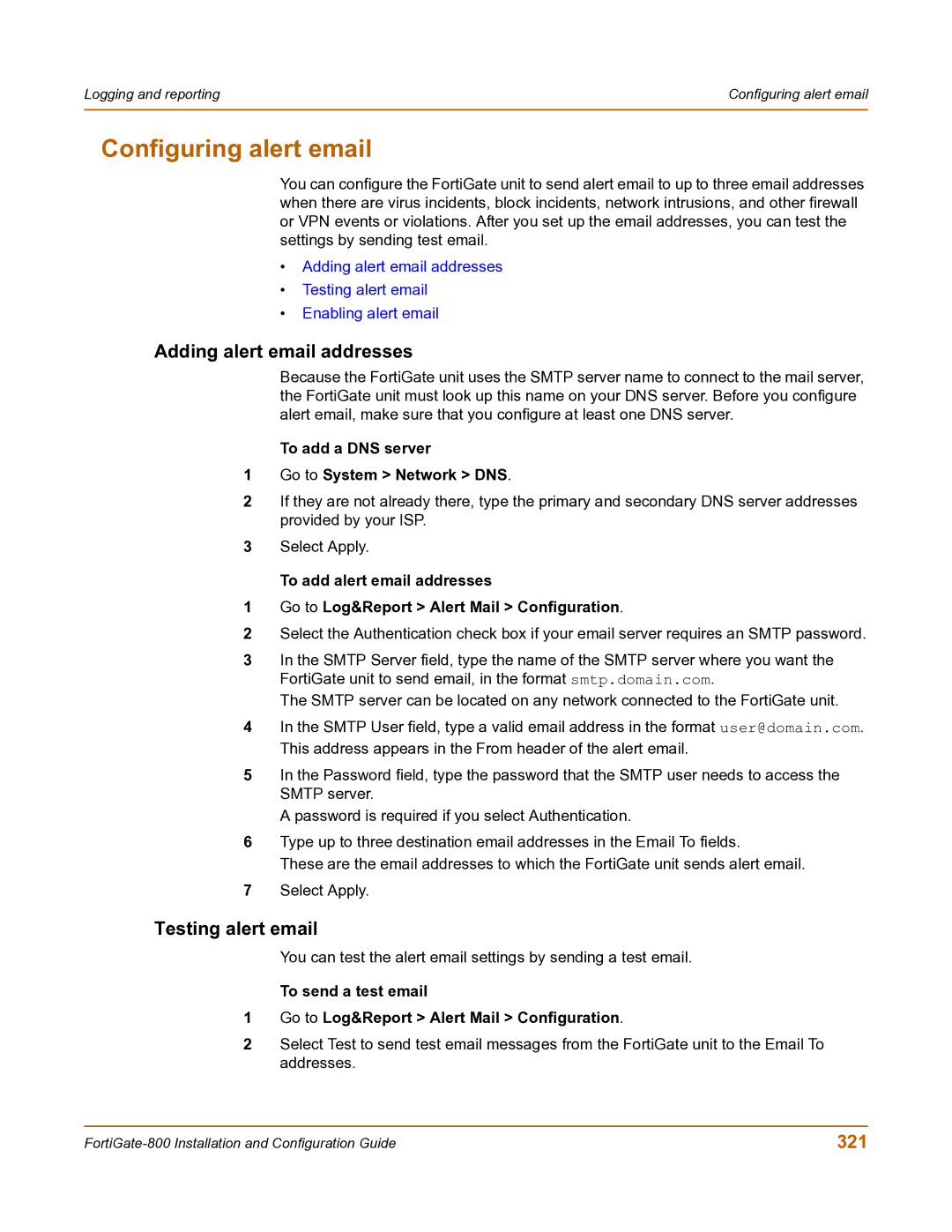Logging and reporting | Configuring alert email |
|
|
Configuring alert email
You can configure the FortiGate unit to send alert email to up to three email addresses when there are virus incidents, block incidents, network intrusions, and other firewall or VPN events or violations. After you set up the email addresses, you can test the settings by sending test email.
•Adding alert email addresses
•Testing alert email
•Enabling alert email
Adding alert email addresses
Because the FortiGate unit uses the SMTP server name to connect to the mail server, the FortiGate unit must look up this name on your DNS server. Before you configure alert email, make sure that you configure at least one DNS server.
To add a DNS server
1Go to System > Network > DNS.
2If they are not already there, type the primary and secondary DNS server addresses provided by your ISP.
3Select Apply.
To add alert email addresses
1Go to Log&Report > Alert Mail > Configuration.
2Select the Authentication check box if your email server requires an SMTP password.
3In the SMTP Server field, type the name of the SMTP server where you want the FortiGate unit to send email, in the format smtp.domain.com.
The SMTP server can be located on any network connected to the FortiGate unit.
4In the SMTP User field, type a valid email address in the format user@domain.com. This address appears in the From header of the alert email.
5In the Password field, type the password that the SMTP user needs to access the SMTP server.
A password is required if you select Authentication.
6Type up to three destination email addresses in the Email To fields.
These are the email addresses to which the FortiGate unit sends alert email.
7Select Apply.
Testing alert email
You can test the alert email settings by sending a test email.
To send a test email
1Go to Log&Report > Alert Mail > Configuration.
2Select Test to send test email messages from the FortiGate unit to the Email To addresses.
321 |
